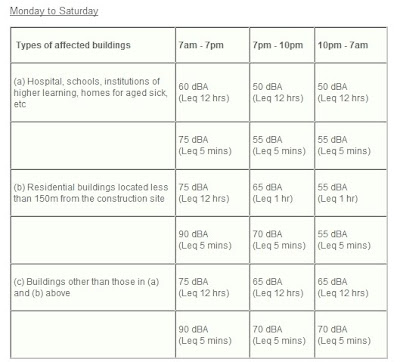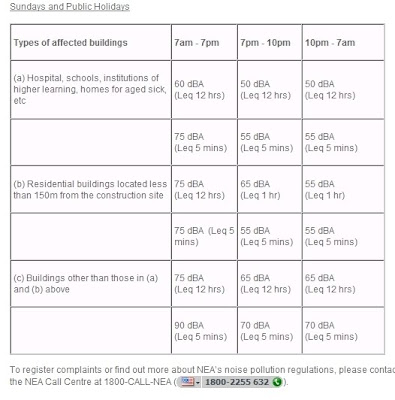Amongst Singaporeans, 80% to 90% of us stay in HDB flats. Of course most aspire to move to private housing, but the reality is that 2 forces are suppressing our ability to do so. These are:
- Wages
- Price of private housing - The most affordable private apartments with 2 bedrooms start at S$1mil these days.
While our real wages get lower and private property prices shoot for the sky and beyond, we still need a roof over our heads.
So, if we are unable to buy private housing anymore, are we able to afford a HDB flat comfortably? Let's use a few of critical points to test the HDB flat system.
The Buyers
We like to complain as a whole. But who are the people making up 'we'?
For this test, 3 typical HDB buyer types are used:
- the Young Couple - We reckon this is their first time buying a HDB flat, and they bring home a combined gross monthly income of S$3,800.
- the Median Singaporean family - This is that family whose income is right in the middle amongst all Singaporean families. As highlighted in the Golden Years Bill entry, this very average Singaporean family makes ends meet with S$4,850 per month.
- the Income Ceiling family - If your combined household income goes beyond S$8,000 per month, HDB will not allow you to purchase a brand new HDB flat. Hence, this is an important group of families to look at.
The HDB Flat
A HDB Flat is a piece of real estate. And 2 factors affect the price of real estate significantly, i.e. location and size.
Hence, for the purpose of comparison, we use the most popular HDB configuration, i.e. the 4-room HDB flat, and find out how much a 4-room flat costs in different parts of Singapore. Starting from the cheapest area, i.e. Jurong West, moving to Punggol (where a lot of supply is), including a semi-matured estate such as Bukit Batok, and a fully matured estate such as Toa Payoh. Of course, we have also included the iconically expensive Pinnacle@Duxton to stretch our HDB dwellers' dollar a little.
We then compare the figures for Brand New flats and Resale Flats in these areas for the 4-room flat, and against the incomes of the 3 buyer types.
The Test
It seems HDB has got it all sorted out. At least for now.
The Young Couple (S$3,850)
Assuming you are a sane young couple, i.e. spending a prudent maximum of 30% of your gross monthly household income (mHHI) on paying your flat's installments, your options are limited to (i) Brand New HDB Flats (ii) in cheaper areas such as Jurong West and Punggol. No need to fantasize about semi-matured estate as there are limited or no new HDB flats. As for flats in mature estates and/or iconic HDB pieces, you can pinch yourself to wake up now.
HDB seems to have realised this situation recently. It increased the amount of additional grant a first-time couple can receive. The grant is on a sliding scale, i.e. if you make more (up to S$5,000), you get less. See grants here.
However, for our Young couple, the grant does not improve their consumption power significantly because they are already stuck in the lowest rung. In other words, the grant is not gonna miraculously help them to afford a flat in Toa Payoh.
The Median Family (S$4,850)
The Median Family, though making around 25% more, is not doing much better than the Young Couple either. If it qualifies, it can buy the same cheap Brand New flats like the Young Couple can. If it doesn't qualify for Brand New flats, it is limited to only resale flats in the cheapest area such as Jurong West. It cannot even afford the resale flats in Punggol prudently.
Remember, the Median Family is at the top of the bottom 50% of all Singaporean families. If it can't prudently afford a Brand New flat outside of Jurong West and Punggol, it means half of Singaporean families cannot either.
The Income Ceiling Family (S$8,000)
This family has it much better. HDB fixes all the prices of its Brand New Flat such that this family can afford them. At S$8,000 per month, this family can even afford resale flats in all areas. Sounds good, doesn't it? I don't have the figures... but at S$8,000 per month, this family is probably at the 75%-80% percentile of all Singaporean mHHi.
However, trouble is also looming for the S$8,000 per month family, because it is beginning to feel the limits of its consumption power. For example, it cannot comfortably afford the upper end of Brand New Pinnacle@Duxton as long as they are priced above S$500k. Neither can it afford the new high prices of resale flats. Refer to the columns marked 'X' in the table.
Implications Gleaned from this Test
So what does this test tell us?
(1) 50% of Singaporean families cannot prudently afford a Brand New HDB flat in most locations, unless they have a stash of cash or existing asset, e.g. from inheritance.
(2) Barring those with stash of cash/existing asset, families who fall below the median mHHI of S$4,850 but yet have recently bought a flat in better areas, are spending more than 30% of their gross income on housing alone.
These families are compromising on other aspects of their lives. In the short run, these other aspects may appear to be the inability to afford a car or a holiday. But in the long run, these compromises may add up to the inability to afford elder care for their parents and themselves, and/or that chance to pursue an overseas degree if the children are unable to qualify for local universities.
(3) Even with government grants, it is virtually impossible for young couples to be staying outside of the cheapest HDB estates without extra help.
This of course adds to the delay in family formation, as the young couple puts off the expensive marriage and home purchase. In an economy where wages are not growing as fast as property prices, these young couples will find themselves climbing an escalator that is sliding downwards.
(4) Within the HDB construct, the household incomes and HDB prices can still be matched. Hence SINGOV can announce without blinking that HDB Flats are still affordable.
However, something is lost in the process and unreported.
What's lost is CHOICE and ASPIRATION.
Should the income ceiling for HDB flay buyers not be increased, even the HDB flat buyers in the top salary bands will have to start suppressing their desires for the 'better' flats.
Are Choice and Aspiration a luxury for at least 75% of Singaporean families?
To answer this question, we have to take things into context.
If our country is 3rd world or developing, it will be common to observe significant groups of people experiencing lack of choice/aspiration, and/or even live in poverty.
However, if our country is enjoying one of the highest GDP per capita in the world, yet 75% of its people/families have to accept reduced choices and aspirations, then something is not right with the wealth distribution mechanism.
If we don't meet most of our people's aspirations, we are not progressing as one Singapore anymore. What good is a nation full of people with unmet aspirations? Is it true that their aspirations are unmet because these people have unrealistic aspirations?
This is not simply right.






















